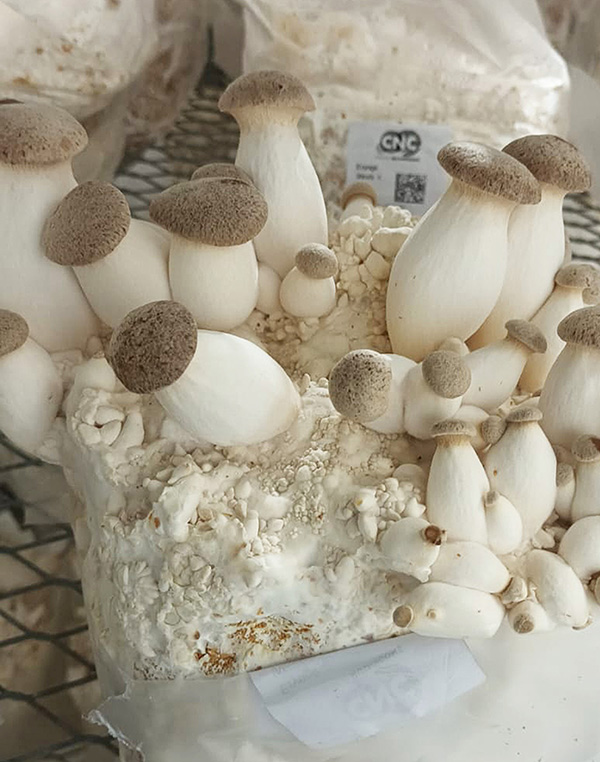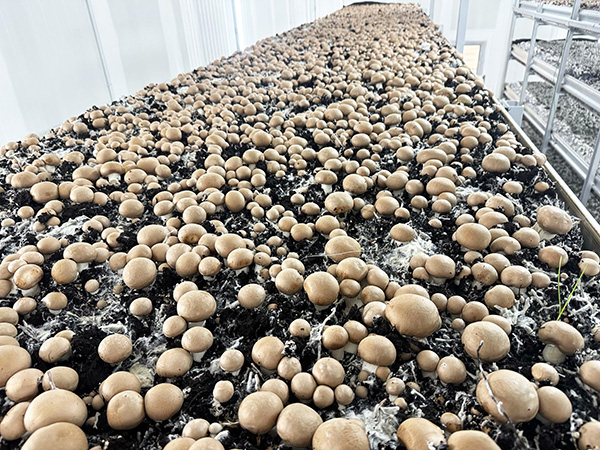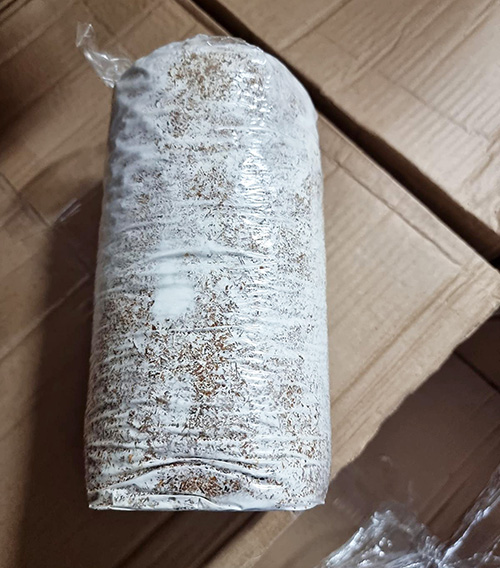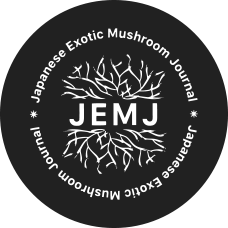Login or Subscribe
You must be logged in to access this content
Subscribe for free access to Japanese Exotic Mushroom Journal and gain insider knowledge on effective cultivation methods for Japanese mushroom species. Elevate your skills with expert tips and innovative technologies to master the art of growing Japanese exotic mushrooms.
◆ Discover exclusive Japanese mushroom cultivation techniques
◆ Learn innovative methods to enhance mushroom quality and yield
◆ Tap into Japan's rich heritage for unique growing insights
◆ Discover exclusive Japanese mushroom cultivation techniques
◆ Learn innovative methods to enhance mushroom quality and yield
◆ Tap into Japan's rich heritage for unique growing insights
Subscribe Now for Free Login
An Interview with Johannes Auer on the Conditions in Europe
- Johannes Auer has written a series of editorials outlining the different steps for making a specialty mushroom venture into a viable business in the European market. To mark one year into this editorial series, I interviewed Johannes on some of my pressing questions about the mushroom market in Europe and elsewhere. As a farm manager in Austria with a non-traditional background similar to my own, I wanted to explore his thoughts and whether they diverged from my own impressions. 2025 is a year where I hope this journal can really explore these problems, and especially the questions of sustainability, in an industry where sustainability is not a buzzword but a question of survival.
- 1) Looking back since you began writing about the unique challenges of starting a mushroom business in the European market, one year ago, what has changed?On the whole, little to nothing has changed. The economic framework conditions are almost the same as back then, and Europe is continuing to experience challenging market situations that do not spare any sector of the agriculture and food business.2) What the are the biggest challenges facing mushroom growers in Western and Central Europe in the short-term, the mid-term, and the long-term?This question is relatively difficult to answer definitively because there is no uniform European market in terms of consumption habits. Even business practices and market conditions vary quite radically from country to country. In the short term, the greatest challenge is definitely the difficult economic situation, where growers face enormous increases in the cost of substrate, energy, and labor, while at the same time, facing immense price pressure to produce more and more at ever lower costs. In the medium and long term, the major challenge will undoubtedly be ensuring resource and raw material security. Europe is too dependent on imported raw materials and also lacks energy independence. Along with this, mushroom growers must be careful not to rely on just a few large suppliers for all of their needs and, like other agricultural sectors, lose their complete autonomy as they become subsidiaries of large conglomerates.3) Do you think there is a path forward for viable domestic production of quality and premium specialty mushrooms in Europe? What needs to happen to enable it?
Yes, I see a future for regional food cultivation focused on import substitution. In Europe - though not equally in all countries - there is a significant willingness to buy regional products. In the edible mushroom sector in particular, the label of regional, sustainable food is of great importance in countries like Austria, Switzerland, and France. Mushroom growers should cultivate this image by striving for sustainable methods of cultivation, based on realistic and thorough understanding of the lifeforms involved and the engineering challenges of cultivation, rather than merely catering to the latest buzzwords around green industry all the while not having any real image of what that means in practice. Specifically, regional mushroom production is always linked to the question of substrate origin and energy use. These questions must be addressed transparently and honestly if such growers want to produce a lasting and far-reaching brand amongst their domestic consumers. They should avoid too-clever marketing clichés and “green-washing.” Consumers today expect transparency, even if they rarely receive it. The availability of information - as well as misinformation - is higher than perhaps ever before, making honesty a good strategy. 
- 4) How does your experience with button mushrooms color your approach to specialty mushrooms?My experience setting up a large-scale Agaricus bisporus farm in Austria informs my current focus on the basics. I have learned that mushrooms are organisms that must be nourished in different ways according to the quirks of their biology. The key to successful cultivation lies in the substrate, followed by quality spawn. From this perspective, I have explored so-called exotic mushrooms - how do I optimally nourish each specific organism? What would be practical within our market? How do we maximize sustainability? I always try to keep all aspects of the business in mind.5) You have experience spearheading a major project to set up button mushroom cultivation from the ground up. How does your experience developing a new system in a challenging regulatory and consumer market help you approach new sectors of mushroom farming?
The most important lesson from the projects of recent years is that before starting something, one needs a long-term strategy. Of course, circumstances and previously certain assumptions can change, but every construction must be based on a clear plan, and every business needs a market, both topics I have emphasized extensively in my editorials for this journal. In the end, however, one must be aware of one thing: we are farmers. We are not producers of dead matter and what we produce is not completely and perfectly within our control. We work with natural systems, rather than completely dictating them. All the modern jargon employed by start ups and capital investment firms, which often amounts to little more than empty talk, cannot obscure the fact that we are dealing with a living organism in mushrooms - an organism that, ultimately, we cannot manipulate at will. Therefore, we should stop talking about “products” and instead speak of food. We should adapt our working methods to given circumstances, but we must never forget: we work with nature, and we should maintain our respect for it, for in the end, it is nature that nourishes us. To successfully cultivate mushrooms, one must first develop a sensitivity for living things and the respect that comes with it. I consider farming an exercise in mutual respect, respect for the fragile but marvelous systems that support our complex modern society. That, ultimately, is the greatest lesson I have learned after years in mushroom cultivation. 
- A bed of button mushrooms at a European farm
- 6) What is the one, single thing you would say the European market needs more than anything else right now?A renewed culture of nutrition is needed - one that moves away from cheap meat toward a balanced diet. You have outlined such an approach in past issues of this journal, and it is a key goal of people working in public health. This is not a project for one industry journal, one farm, or even one industry, but rather something that we all must contribute to, both in our personal lives and our professional work.7) Lastly, how would you integrate the mushroom sector across other industries, especially the more technology oriented “green” industries focused on sustainability and the traditional agricultural sector?
First of all, I find the term “industry” entirely inappropriate when it comes to food. I understand that the term is primarily used to describe the economic production methods that we utilize to make food widely accessible. However, the food industry is increasingly dominated by a hyper-technological culture that strips organisms of their essence and degrades them to mere commodities. If one truly wants to integrate edible mushrooms into a real example of a sustainable industry, one genuinely deserving of the moniker “green industry,” then one must ask whether this can be achieved without a culture attuned to nature, and a willingness to embrace complex relationships that resist the capitalist need for viewing each product as if it existed in a self-contained vacuum. In Europe especially, an entire “start-up” culture of companies borrowing from America’s Silicon Valley now promote a vision for the future in which we only need to change technology and can otherwise maintain the same standard of living - just in a significantly more sustainable way. This no sacrifice, no inconveniences sales pitch colors expectations for an easy and non-traumatic transition to the next economic and environmental conditions facing mankind. This is just not historically accurate to how such transitions occur. In my view, this vision is just wishful thinking - just consider the rare earth elements that this industry itself requires, or the heavy use of chemical fertilizers, pesticides, herbicides and petrol-powered heavy machinery that agriculture as we know it requires. What we need is a cultural revolution in food production, and this honestly starts with something largely out of the hands of farmers and that is to say, the dietary habits of consumers. If mushroom growers succeed in making the full value of mushrooms, nutritional and ecological, accessible to a broader audience, then it can indeed be part of a green revolution. But to get to that point will require a lot of work, and that is the biggest challenge we have in Europe right now. 
- Many European farms use Chinese logs, as seen here in this storage room
- Johannes Auer was born in Tyrol, Austria, and is project manager and grower at FZ Development Gmbh, Frutura Austria and has worked as a consultant for several other companies. Johannes has worked in the mushroom business full-time since 2019 and has a background in horticulture with an interest in microorganisms in soil. He has worked in and studied the mushroom sector in Austria, Belgium, Hungary, Italy, Israel and the Netherlands.He is currently working on developing the exotic mushroom sector and is involved in several research and development projects for exotic mushroom farming.You can contact him at johannes@jauer.at





 1-2-13 Honmachi, Komoro city, Nagano prefecture, Japan 384-0026
1-2-13 Honmachi, Komoro city, Nagano prefecture, Japan 384-0026